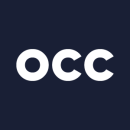
For hiring managers, whiteboarding interviews and code reviews are not only a common test of engineering candidates’ technical knowledge but also a demonstration of their problem-solving abilities and collaboration style under pressure. And through the way the interviews are conducted, they’re an opportunity to show off the company culture, too.
But with many tech professionals forced to work from home, hiring managers are tasked with refiguring whiteboarding interviews and code reviews for a virtual setting. Is it possible to create a similar interview experience that also puts candidates at ease?
Hiring managers at two Chicago companies told Built In that remote interviews require some problem-solving and collaborating of their own, ahead of time. Interviewers at both The Options Clearing Corporation (OCC) and West Monroe equip themselves with a variety of tools, depending on the circumstances, and they let candidates know what to expect, too.
“There are plenty of options, but it’s important to be flexible, patient and creative,” said Akshay Kunkulol, OCC’s Director of Risk Engineering.
Kunkulol conducts video interviews over Cisco Webex because it also has a whiteboard feature where all parties can annotate. Collaborative websites like Code Collab come in handy, too.
Similarly, Eric Chi, a senior manager of data engineering at West Monroe, finds it most effective to combine tools like Microsoft Azure DevOps or Miro with screen sharing on Zoom or Microsoft Teams.
The toughest thing to communicate virtually is company culture, but both Chi and Kunkulol said a strong effort to do so should be made throughout. Chi mimics eye contact by looking at the camera while Kunkulol starts the interview with small talk and ends with a story about the company.
“A well-executed virtual interview will deliver a stellar candidate experience by showing the agility, flexibility and empathy that are the hallmarks of a strong company culture,” Kunkulol said.
As the world’s largest equity derivatives clearing organization, OCC is the foundation for secure markets. According to Kunkulol, every employee strives to embody the principles of risk management in every task, including hiring. Kunkulol said that interviewers must be prepared to use a variety of tools — especially in case of technical glitches — and inform candidates of tools and plans ahead of time, too.
What tools or technology do you use to conduct code review and whiteboarding interviews virtually?
There are plenty of options, but it’s important to be flexible, patient and creative.
We use Webex to conduct video interviews and ask candidates to share content from their devices. They can use any tool from the device they’re comfortable with to walk through code. Some candidates prepare architecture diagrams in PowerPoint or Microsoft Visio where they can move boxes around to cater to the questions asked. Webex also provides a whiteboard feature that allows all parties to annotate.
For some of our developer roles, we use InVisionApp for whiteboarding. While the nature of the coding is very simple, it is a powerful tool to assess technologists, including their ability to perform under time pressure. Our interviewers also use collaborative websites like Code Collab and CoderPad. If we plan to use these collaboration tools during an interview, it’s important to communicate that to candidates ahead of time to avoid surprises.
If life interrupts the interview, be empathetic and don’t penalize candidates.”
How do you adapt the format or content of interviews when conducting them virtually?
I remember my dad saying a firm handshake accompanied by good eye contact can seal the deal for you. In a virtual interview, you don’t have the opportunity for a handshake. Good eye contact still applies, but some candidates may be camera-shy. It’s important to spend the first few minutes getting the candidate comfortable with a smile and small talk.
Despite preparation, technical glitches can still occur. If they do, don’t hesitate to disclose that to the candidate. If the video freezes or the audio skips out and you’re unable to hear that person’s response, ask them to repeat it.
In a virtual setting, a candidate can have notes around them to organize thoughts or give them hints. There is nothing wrong with that as long as candidates are not looking away from the camera a lot and simply reading off a script. It’s crucial that interviewers spend some time preparing intriguing questions that will assess how a candidate solves problems instead of their ability to repeat answers from a “top 100 interview questions” list.
Another challenge with video interviews is that candidates won’t be able to walk around your office and get a firsthand glimpse of the company culture. To compensate for that, spend a few minutes at the end telling a compelling story about the culture.
What’s your single best piece of advice for engineering leaders who are now tasked with handling technical interviews virtually?
If life interrupts the interview, be empathetic and don’t penalize candidates. If your desired tools don’t work, be flexible with other tools. A well-executed virtual interview will deliver a stellar candidate experience by showing the agility, flexibility and empathy that are the hallmarks of a strong company culture. My advice for engineering leaders would be to practice those values. Only then can you hire world-class talent.
The consultants at West Monroe use technology to drive financial results for businesses, and the same goes for interviews with engineers. Eric Chi, a senior manager of data engineering, said that a variety of tools, collaboration, planning and flexibility allow West Monroe consultants to conduct successful code reviews and whiteboarding interviews.
What tools or technology do you use to conduct code review and whiteboarding interviews virtually?
West Monroe consultants use a variety of tools to increase development efficiency while physically separated. Modern tools for peer code reviews and pull requests like Microsoft Azure DevOps have been instrumental for virtual software development work, allowing our teams to collaborate, comment and approve directly on individual lines of code. This is especially effective when combined with screen sharing in Microsoft Teams or Zoom.
I use Miro for very structured whiteboarding interview sessions when I need to replicate a physical whiteboard for things like virtual Post-it notes or parking lots. Otherwise, I use OneNote and share my screen while taking notes to ensure agreement. I also use my stylus pen and touch screen so I can sketch out diagrams or capture processes and data flows.
Treat virtual interviews like in-person ones: plan ahead, have an agenda, and be present and focused.”
How do you adapt the format or content of interviews when conducting them virtually?
Plan ahead. Everyone knows how to use a physical Post-it note, but virtual Post-it notes have a learning curve. Prepare the virtual whiteboard in advance and set aside time to show the audience how to participate in the session. Also recognize that not everyone can “draw” virtually, so designate one person to do so if you can or utilize standard shapes that participants can copy and paste. Turning the camera on is key to understanding physical cues, so I always set that expectation in advance. When presenting, I try to mimic eye contact by looking at the camera, which has more of an impact than you might think.
What's your single best piece of advice for leaders who are now tasked with handling technical interviews virtually?
Treat virtual interviews like in-person ones: plan ahead, have an agenda, and be present and focused. That’s not to say you should ignore that we’re working remotely in a COVID-19 world, but it doesn’t mean that interviews can’t be productive.











